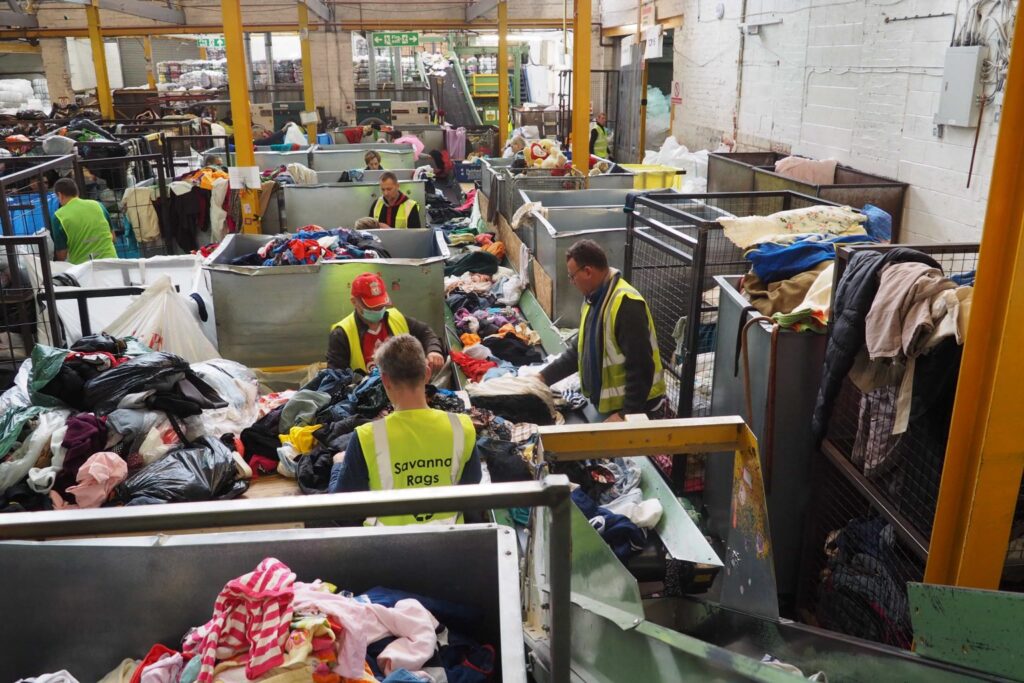In a joint statement from EuRIC Textiles and Municipal Waste Europe (MWE), the associations have called for intervention from the EU to prevent widespread bankruptcies.
The situation has been caused by several global disruptions including the war in Ukraine, logistical challenges in Africa, and the rise of “ultra-fast fashion”.
The situation has resulted in the oversupply of used textiles and a decline in demand from traditional export markets. The trade in used textiles between the EU and non-EU decreased from 464,993 tonnes in 2022 to 430,185 tonnes in 2023.
Consequently, the price for second-hand textiles has decreased significantly while the costs of collection, sorting, and recycling has seen a rapid increase.
The associations have said that since spring this year, the prices for sorted second-hand garments no longer cover processing costs, leading to major cash flow problems for sorting operators and knock-on effects downstream.
Looking for solutions to the used textiles crisis
EuRIC and MWE have called on “immediate financial and legislative support” to safeguard the industry from collapse.
The joint statement asked the EU to encourage Member States to lower VAT on textile repair, reuse, and recycling activities, within the existing VAT Directive framework, and explore the possibility of introducing a tax on new, petroleum-based materials.
The associations said that they hope that these changes will incentivise the use of recycled materials and reduce the environmental impact of virgin textile production.
They have also asked the EU to facilitate public-private partnerships to foster innovation in textile recycling and to scale up recycling technologies.
Finally, the associations have called on the EU to introduce the mandatory inclusion of a percentage of recycled textile content (most preferably from post-consumer textiles) in all new textile products placed on the EU market, with a clear trajectory for increasing this percentage over the coming years.
They have said this change would be in line with commission president Ursula Von der Leyen’s ambition for “a competitive and strong circular economy” by increasing the demand for recycled textiles, expand recycling capacity, and promote the use of sustainable materials through upcoming ecodesign requirements.









Subscribe for free